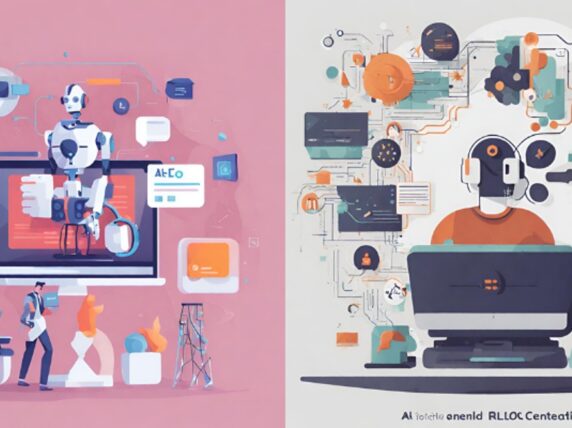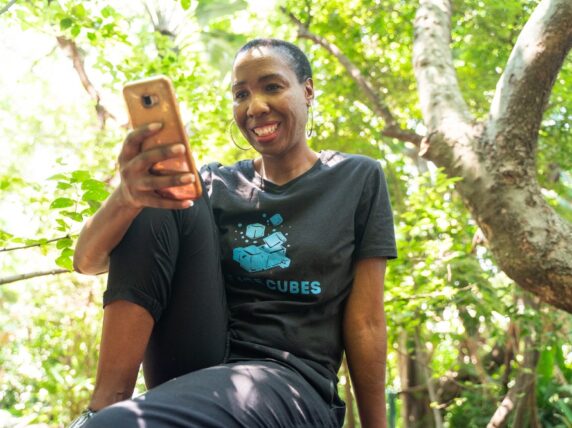5 NGOs using mobile technology to better engage with citizens
By the end of 2017 it is predicted that there will be some 4.77 billion mobile users and by 2020 2.6 billion people will have access to smartphones.
The huge expansion of mobile tech and the reduction in cost of data is paving the way for easy civic engagement for NGOs.
While charities and NGOs commonly use mobile phones in disaster situations, there is a slower pace of adoption when it comes to reaching out to and engaging directly with beneficiaries. Some organisations experimenting with mobile engagement are seeing better service delivery, increased transparency and are meeting the growing demand from donors for evidence-based distribution.
Here are five NGOs using mobile tech to increase their impact:
What Went Wrong? is a project developed by Peter DiCampo, the Magnum Foundation and Columbia Journalism School’s Brown Institute. The programme uses text messaging and Twitter to ask local people to feedback on the aid that they have received and where things haven’t worked out. Submissions are put into a map-based interface that is then shared with aid agencies, bringing the issue to their attention and allowing them to publicly respond. Aside from a powerful accountability tool for both beneficiaries and donors, What Went Wrong? challenges the narrative that people are passive recipients who have aid bestowed upon them and connects communities with the international aid conversation.
Africa’s Voices was born out of a Cambridge University research project. The charity uses radio and text message responses to gather grass-roots opinions. Radio DJs pose questions in their shows and ask people to text their responses, which are then collated and the data shared with the relevant organisations. They have covered topics from child marriage to limits on successive presidential terms. A pilot project with UNICEF Somalia gathered public opinion on vaccinations, maternal, neonatal and child health. Over 8,400 people participated and because of the feedback UNICEF Somalia adjusted their programme to overcome the barriers to vaccination take-up.
Subscribe to our newsletter
Our weekly email newsletter, Network News, is an indispensable weekly digest of the latest updates on funding, jobs, resources, news and learning opportunities in the international development sector.
Get Network NewsGlobal Forest Watch’s (GFW) mission is to record the impact of environmental degradation on communities. GFW uses mobile-friendly technology, blogging, social media and discussion groups to monitor and prevent deforestation around the world. The platform is continuing to expand with open-sourced code for people to create their own web-based and mobile apps, giving communities much more control and the ability to contact decision makers with clear evidence. The grass-roots crowdsourced database is a powerful campaigning asset for NGOs and near real-time reporting is valuable for pressuring governments and business. The forum has also provided a space for NGOs to present ideas for projects to communities and gain insight into what people think will work for them on the ground.
Between 2014 and 2016, World Vision UK partnered with the Department for International Development (DFID) to test mobile feedback mechanisms in maternal and child health projects. Using surveys, suggestion boxes, text messaging and call-back the seven UK-funded NGOs engaged directly with the communities they support. The project exposed how much people wanted to share their thoughts and opinions, but that they had no mechanism for doing so. Through receiving this feedback, World Vision learned where service delivery was failing and where assets would be better placed for greater impact. The public perception of the NGOs also improved, with women viewing them as thinking organisations that cared about them and their contribution.
Founded in 2011, BudgIT is a Nigerian civic organisation that shares information about government spending across social media for the public to monitor and track. Tracka is a BudgIT sub-project that uses open-source data and mobile engagement technology so that people can share photos, videos, documents and comments on the progress of government projects. So far some 73,000 people have engaged with the forum. Given the amount of international aid the Nigerian government receives BudgIT and Tracka are an important monitoring and feedback service. In 2015 Tracka participants monitored 277 projects in 24 communities, because of grass-roots contributions we know that 75% of the projects in the 2015 budget were unfinished. Citizen participation continues to grow, highlighting how much people want to collaborate with organisations to deliver what their communities need to thrive.
In all these projects, people felt that their opinions were valued and their contribution led to results, and they were delighted to participate. It is when feedback is ignored that communities become jaded. Successfully using mobile technology to improve development work relies on organisations’ willingness to broaden the public discourse and move towards a situation where donors and recipients are viewed as equals.
Category
News & Views



